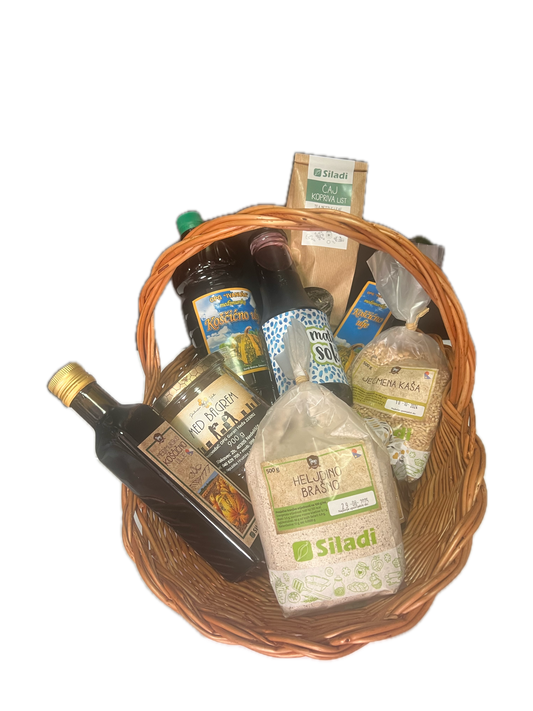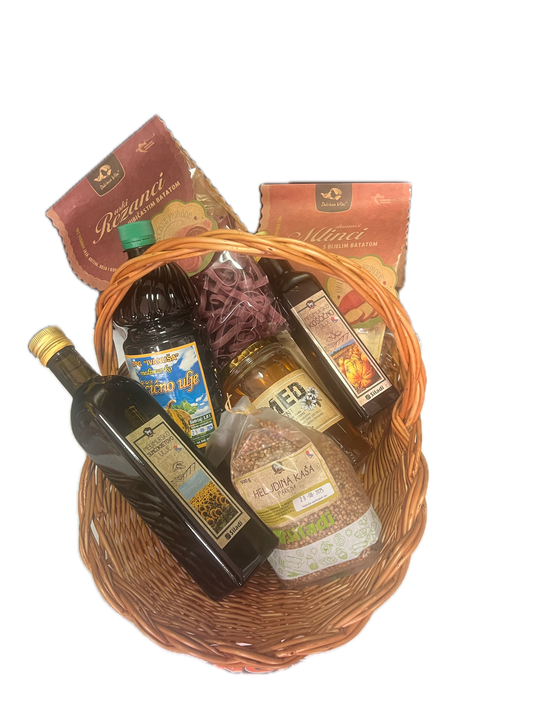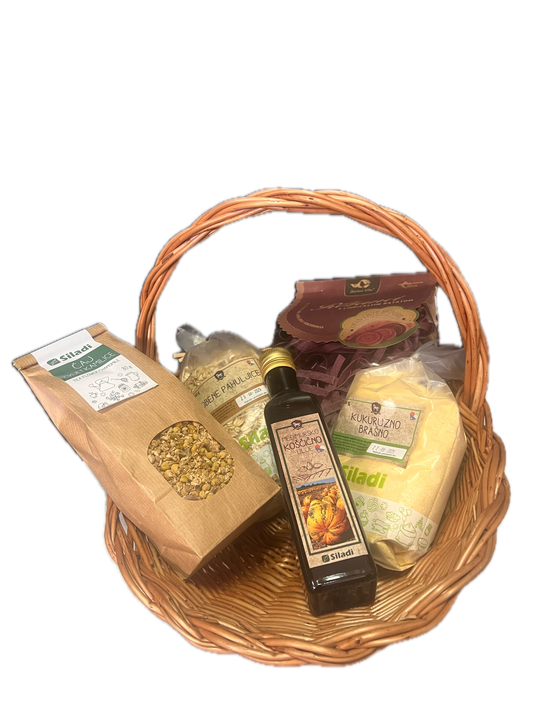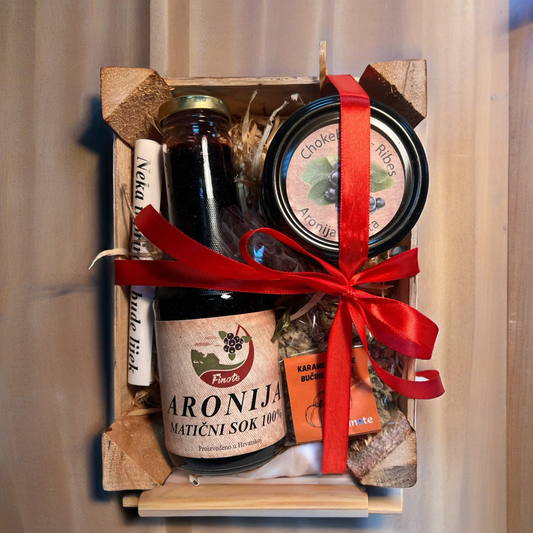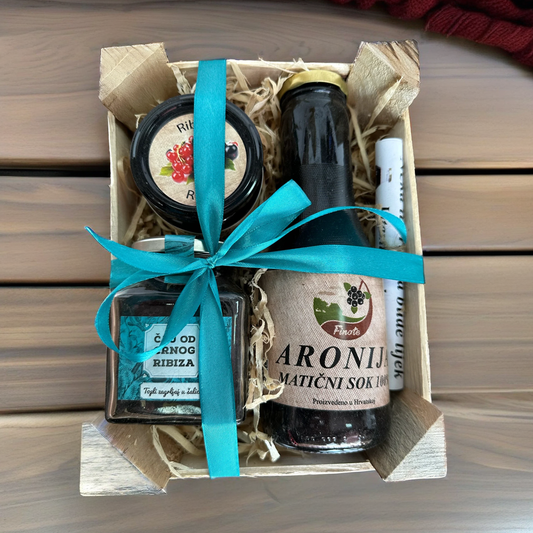
🌶️ The influence of spicy food on the human body
Međimurski cekerSpicy foods can have different effects on the body, and these effects depend on many factors, including the amount of spicy food consumed, individual sensitivities, and the person's state of health. Here are some important facts about the effects of spicy food on the body:
Positive effects of spicy food on the human body:
- Improves digestion: Spicy food can stimulate the digestive system, speed up metabolism and stimulate the secretion of digestive juices.
- Contains antioxidants: Some hot peppers contain antioxidants such as beta-carotene and vitamin C, which are beneficial for health.
- May reduce the sensation of pain: Capsaicin, the compound that makes food spicy, can temporarily reduce the sensation of pain by stimulating pain receptors in the body.
- Stimulates the release of endorphins: Eating spicy foods can stimulate the release of endorphins, the happy hormone, which can improve mood.
The history of spicy food
Spicy food has a rich history that goes back thousands of years. Here is an overview of the history of the cultivation and use of spicy foods:
- Prehistory: Hot peppers and other spicy ingredients were used by many ancient peoples around the world. Peppers originate from the Americas and were first cultivated in the regions of present-day Mexico and Central America more than 6,000 years ago.
- Spread in the world: After the Spanish conquistadors brought pepper to Europe in the 15th and 16th centuries, it gradually spread throughout the world. Peppers have become an important ingredient in many cuisines and have achieved great popularity.
- Asia: In Asia, peppers have become a key ingredient in many culinary traditions, including Indian, Chinese and Thai cuisine. Many Asian recipes use different types of hot peppers and pepper sauces.
- Africa: Spicy foods are also deeply rooted in African cuisines, where they are used in a variety of dishes and sauces. Some of the most famous African spicy dishes include jollof rice and various curries.
- Caribbean Islands: The Caribbean Islands are also known for their spicy dishes, including jerk chicken with strong spices and hot sauces.
- Modern Culture: Today, hot peppers and spicy food seasonings are widely available around the world. There are many different varieties of peppers, each with different levels of spiciness, flavors and colors.
- Health benefits: Spicy foods have also been linked to a variety of health benefits, including improved digestion, reduced inflammation and a boost in metabolism, which has contributed to its popularity in many diets and health plans.
Overall, spicy food has a long and varied history in many cuisines around the world. Its popularity and diversity in recipes and culinary traditions will certainly continue in the future.
The most popular spicy ingredients
Some of the most popular hot ingredients include chili peppers (eg jalapeño, habanero, cayenne), tabasco sauce, red pepper, cumin, curry powder, and many other spices.
Spicy foods that can be planted in the garden in Croatia
In Croatia, you can successfully grow a variety of hot peppers, including chili, jalapeño, and domestic varieties adapted to the Croatian climate.
What happens to the body when spicy food is consumed
When you consume spicy food, the capsaicin from peppers activates heat and pain receptors on the tongue. This can result in a burning sensation, sweating and increased blood circulation. It can also stimulate the digestive tract and increase metabolism.
Comparison of spicy and sweet food in terms of impact on the human body
Spicy foods tend to have more immediate physiological effects, including increased sweating and increased circulation, while sweet foods can cause a rapid rise in blood sugar levels and subsequent drop in energy.
Recommendation for intake of spicy food
The recommended intake of spicy food varies depending on individual preferences and tolerance to spiciness. For most people, moderate consumption of spicy foods is not harmful and can have digestive and health benefits. It is important to pay attention to your own tolerance and avoid excessive consumption if you feel discomfort or digestive problems.
We recommend that you look at the category 🌶️ Spicy foods on Međimurje Ceker , for quality, domestic, OPG products.
Supporting local spicy food producers
Supporting local spicy food producers has many important benefits, both for the local community and the environment. Here are a few reasons why it is important to support local producers:
- Preserving tradition and culture: Local producers often preserve traditional recipes and methods of growing spicy foods that are important to the cultural heritage of their region. By supporting their work, you help preserve these cultural aspects.
- Stimulating the local economy: By purchasing products from local producers, you support the local economy. This contributes to job creation and increased income in the community.
- Reducing the ecological footprint: Local production reduces the need for long transport of food from far away. This can reduce greenhouse gas emissions and the negative environmental impact that comes from transporting food over long distances.
- Quality and freshness: Locally grown produce is usually fresher and tastes better because it is delivered to the consumer faster. In addition, you can get information about how they were produced, giving you more control over the quality of the food you consume.
- Variety: Local producers often grow different varieties of hot peppers and other ingredients, which can enrich your diet and allow you to try new flavors and recipes.
- Strengthening the community: Supporting local producers can contribute to strengthening ties in the local community. These producers often participate in local markets and events, where people can meet and share experiences.
- Sustainable Farming: Many local hot food producers practice sustainable farming methods, which means they care about the land and the environment. This contributes to the long-term sustainability of agriculture.
Ultimately, supporting local spicy food producers has a positive impact on the community and the environment and can contribute to better food quality and the preservation of cultural values.






















